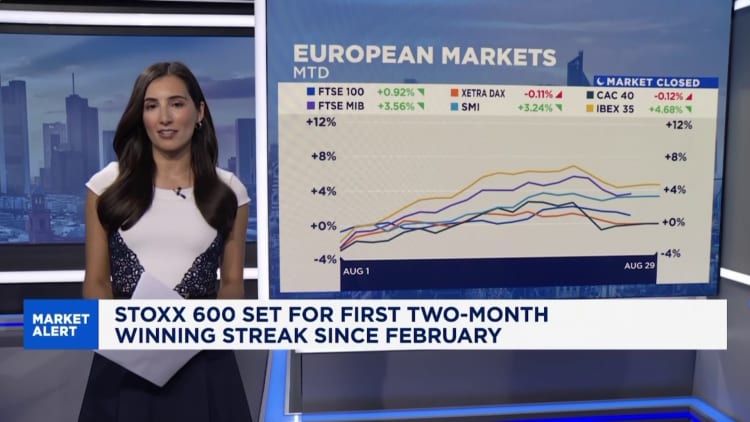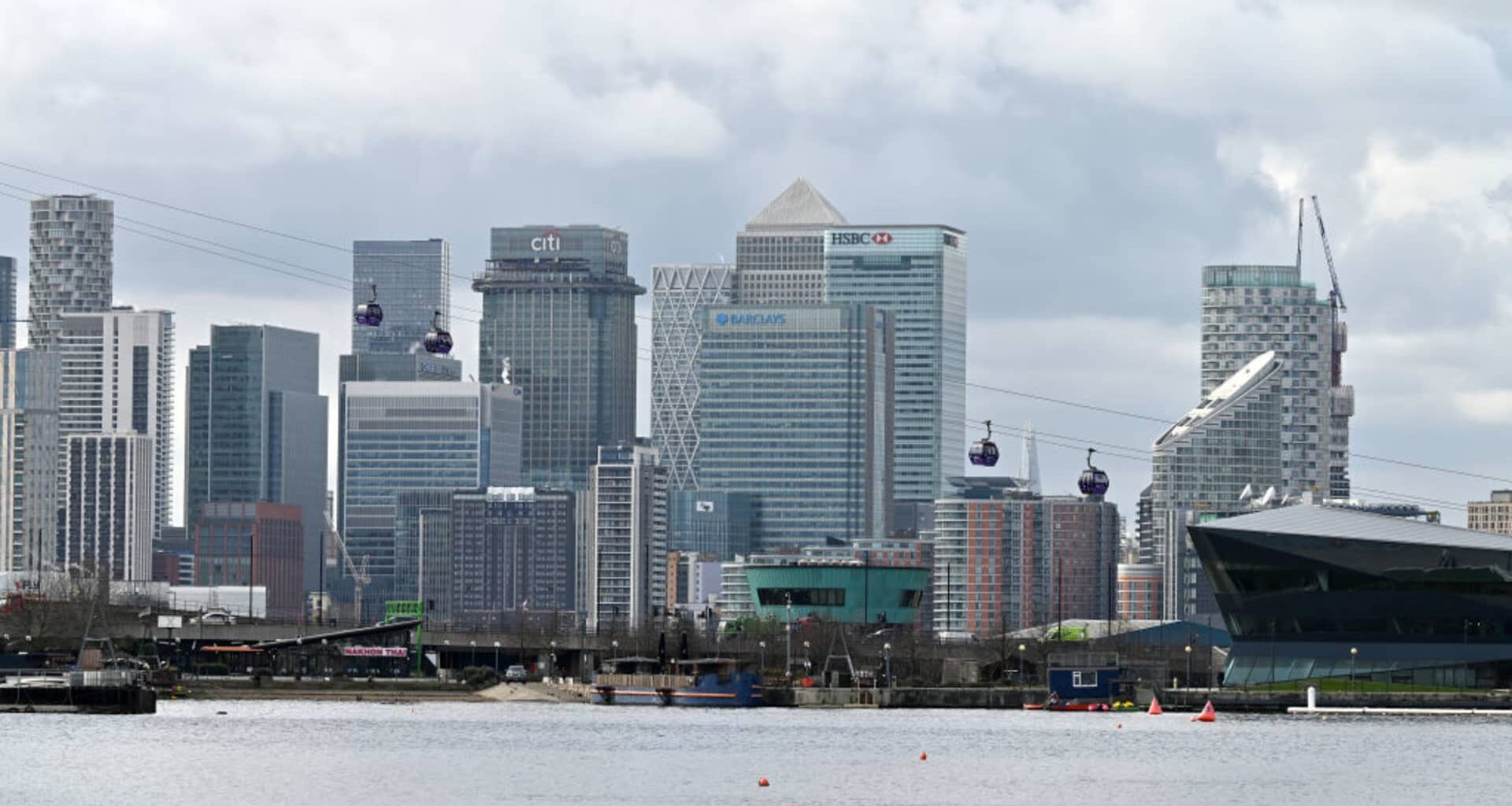European stock markets moved lower on Friday as attention turned to EU and U.S. inflation prints, along with investor concerns about the potential for a U.K. tax raid on banks.
The pan-European Stoxx 600 was 0.4% lower at 1:14 p.m. in London (8:14 a.m. ET), with most sectors in negative territory.
French consumer price inflation cooled to 0.8% in August from 0.9% in July, statistics agency Insee said, just below expectations in a Reuters poll. It came off the back of declines in energy and manufactured product prices, while inflation in food and services came in at 1.6% and 2.1%, respectively.
German inflation, meanwhile, jumped to 2.1% in August from 1.8% in July. Economists polled by Reuters had forecast a 2% annual rate.
Stateside, investors will on Friday be monitoring the personal consumption expenditures price index, a key metric for the Federal Reserve. It comes after Fed Chair Jerome Powell stoked expectations for an interest rate cut in September with a speech last week widely interpreted as dovish-tilting. Interest rate trading currently places around an 85% probability on a cut next month, according to CME’s FedWatch tool.
A general view across Royal Victoria Dock with J.P.Morgan, Citi, HSBC and Barclays bank skyscrapers in Canary Wharf and the IFS Cloud Cable Car on March 11, 2025 in London, United Kingdom.
John Keeble | Getty Images News | Getty Images
Defense companies were top gainers on the Stoxx 600 on Friday, with German players Hensoldt and Renk up by around 3%, and Rheinmetall 4.4% higher. That came after German Chancellor Friedrich Merz told reporters on Thursday that he was doubtful a meeting between Russian President Vladimir Putin and his Ukrainian counterpart Volodymyr Zelenskyy would come to fruition.
At the other end of the index were British lenders NatWest, down 5.4%, Lloyds, down 4.5%, and Barclays, down 3.8%.
The Institute for Public Policy Research published a report Friday suggesting that the government impose a levy on commercial banks following recent “windfall profits” related to higher interest rates and bond-buying by the Bank of England.
Targeting banks could prove appealing to U.K. Finance Minister Rachel Reeves as she seeks to bolster public finances in her upcoming fall budget.
Russ Mould, investment director at AJ Bell, said traders were considering whether the “era of bumper profits, dividends and buybacks is now under threat.”
“The timing of the tax debate, fuelled by a report from think-tank IPPR, is unfortunate given it coincides with a new poll from Lloyds suggesting a rise in business confidence, despite cost pressures. This positive sentiment could be threatened if businesses take the view that a new tax on banks might force lenders to tighten their lending criteria,” Mould said in emailed comments.
However, he added that Reeves may be “wary of doing something that could put off investors and shareholders as she seeks to earn favour from the markets and attract investment,” and of any measure that could dampen lending and restrict economic growth.
Citi analysts, meanwhile, said in a note to clients that the IPPR’s proposal added little to a debate around bank tax hikes that has been running for several years. The Labour government remains divided on how to proceed, with Reeves appearing to favor encouraging banks to lend more through reforms to boost growth, according to Citi.
Options ahead could include changes to current bank taxes or a new targeted tax on banks’ reserve returns, the analysts said, but the latter would be difficult to implement and could push lenders into higher risk instruments. “An increase in the U.K. bank tax cannot be ruled out, but we expect other tax levers to be pursued beforehand,” they concluded.

Natwest share price.

